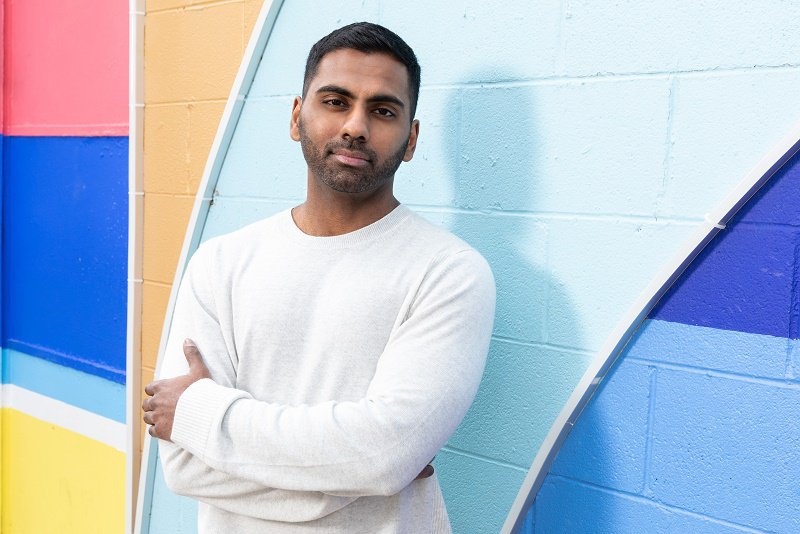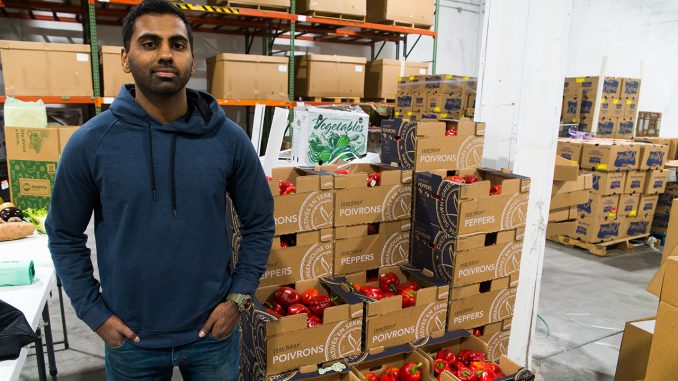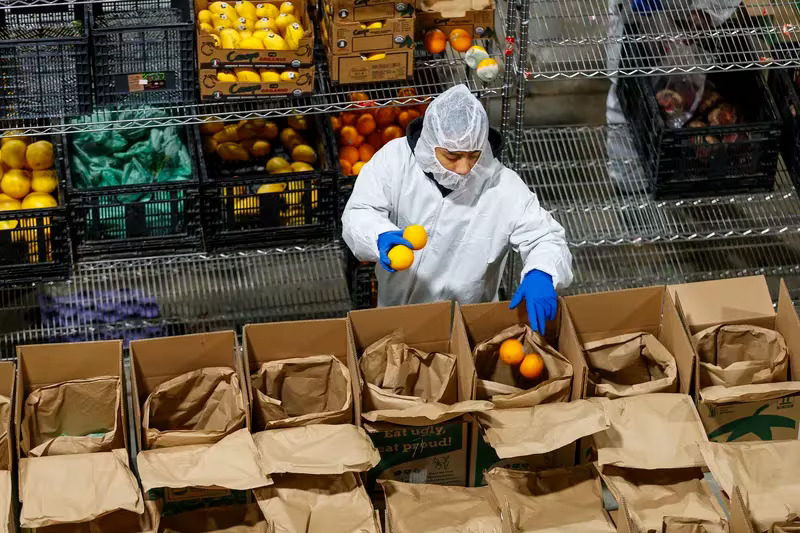(February 7, 2024) Abhi Ramesh found himself in a Pennsylvania apple orchard, utterly amazed by what he saw. The ground was covered with more apples than the trees could hold, all of them destined for the trash. The farmer revealed that these perfectly good fruits would be tossed if they couldn’t be sold within a month or two. This eye-opening moment sparked a game-changing idea in Abhi’s mind: what if there was a way to rescue these “ugly” fruits and veggies from being wasted? And thus, Misfits Market was born.

Founded in 2018, Misfits Market has saved over 228 million pounds of food and has delivered $155 million as a new stream of “rescue revenue” to farmers and producers. “This is a low-cost, low-margin, highly perishable industry that involves very sophisticated operations and logistics, and we built the supply chain from scratch. We’re always the better deal for our customers. We’re not cheaper because we’re lower quality. Our products are always equal or even higher quality,” said the Global Indian, who was listed in the Forbes 30 Under 30 – Social Entrepreneurs and was named EY Entrepreneur of the Year for 2021.
A finance guy
Born in India, Ramesh grew up in Atlanta, Georgia, before moving to Dubai and Bahrain. “I also lived in St. Louis and Canada briefly,” he shared during an interview. “For the first half of my life, I wanted to be a neuroscientist. I remember at one point in my life I also wanted to be an astronaut. Most people want to be an astronaut when they are five or six but I decided I would be one when I was 16.”

After finishing his high school, however, Ramesh was inclined to study finances and joined The Wharton School to pursue a bachelor’s degree in economics and international studies. “I decided I was really interested in finance and enjoyed the business side of things, so I thought of pursuing a career in finance,” Giving more insight into his decision, he shared, “In high school, I was very involved in a bunch of different things. As a lot of Penn and Wharton students are, I was class president and eventually school president, two-sport varsity athlete, and violinist for fourteen years, and I did all the traditional ‘I’m a well-rounded kid applying to college’ type things. But I also enjoyed looking at different ideas and I did some SAT tutoring on the side when I was in high school and that connected to one of my first entrepreneurial experiences. So I was always interested in “business” broadly, whatever that means, but I decided to come to Penn and Wharton because it provided a very good, well rounded, business education.”
A football player during his college days, Ramesh joined Apollo, a financial institution right aftter his graduation. “I wanted to learn investing from a professional point of view but I promised myself I would only spend time there if I was learning. So, I went to Apollo to work on their middle market technology investing platform and got to see how technology companies were run. I got a great understanding of later-stage technology, and after eight months I realized I wasn’t learning anymore,” shared Ramesh, who is also the founder of a coding school.
Entrepreneurial journey
While still working at Apollo, Ramesh visited the Apple farm in Pennsylvania. “There were apples all over the ground. I saw just firsthand how much food goes to waste at the farm level. I was shocked at the time,” he shared. A longtime Philadelphia resident, Ramesh grew more intrigued by the problem of food deserts – those places where buying groceries, especially fresh produce, is a real challenge. Ramesh started exploring nearby farms, pondering on ways to rescue and repurpose food waste.

Ramesh got down to business by reaching out to organic farms in the area and forging connections with the farmers. Persuading them to part with their not-so-perfect produce at incredibly low prices, his studio apartment quickly transformed into a quirky collection of misshapen peaches, apples, tomatoes, and onions. Taking a daring leap, he created a pre-order page on Shopify, splurged $150 on a logo, and put $1,000 into ads. In a bold move, he even applied for five credit cards, accumulating a daunting $150,000 in debt to fuel his vision.
Fortunately, a guardian angel in the form of his close friend, Edward Lando, came to the rescue, providing Abhi with crucial funds to clear his debt and invest in inventory. Misfits Market kicked off on a modest scale, dispatching only five boxes of produce weekly, but soon enough, that number skyrocketed to 200 boxes per week. “It took the better part of the past three years and a lot of capital,” shared the entrepreneur. Securing a total funding of $526.5 million, Misfits Market achieved a valuation of $2 billion, with a significant injection of $225 million in a funding round led by SoftBank Vision Fund 2.

“We had to build a customer waitlist, and for a while, it was a manual file that we’d have to export into our database. It was chaotic on the demand side,” shared Ramesh in a recent interview, adding, “Misfits Market has made a lot of lemonade from unwanted lemons. We set out with a lofty goal of saying we want to eradicate food deserts by 2025. And we think we can do it.”
- Follow Abhi Ramesh on LinkedIn
Also Read: Entrepreneur Meera Singh: Revolutionising the travel industry with innovative logistics solutions



